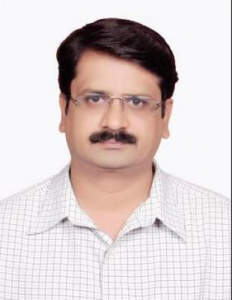- About Department
- Vision & Mission
- POs,PSOs,PEOs
- HOD’s Desk
- PBOS Members
- Faculty
- Laboratory
- Curriculum
- Result Analysis
- MOUs
- Staff Achievements
- Industrial Visits
- Events Organized
- Co-curricular Activities
Welcome to Department of Leather Technology.
Government Institute of Leather Technology (GILT) was established in 1938 under Board of Technical Education to conduct two years Diploma in Leather technology and Diploma in Leather Goods Footwear technology. The object of the establishment was to create trained man power due to huge demand of quality technician and experts in Leather, footwear and Leather Chemical Sector in India. It was established by Bombay Province (British Government).
In 1963 two years Diploma Programs were converted to three years diploma in Leather technology and two years Advance diploma in Leather Goods and Footwear Technology till 1988 under Board of Technical Education. In 1988, these program were merged in Maharashtra State Board of Technical Education.
In 1994 two years Advance Diploma in Leather Goods and Footwear Technology program was converted to three years Diploma in Leather Goods and Footwear Technology. Both the diploma were recognized and approved by All India Council of Technical Education.(AICTE)
In 2003 Government Institute of leather (GILT) merged in Government Polytechnic Mumbai (GPM) and now it is the one of department of Government Polytechnic Mumbai.
The passed out Student work with various prestigious organizations like D’Lords Shoes. Metro shoes, Kavis fashion, Alpha chemicals, Italy, Ram export, Lakhani shoes, SGS testing, colorants, Viswat Chemical, Pidilite , Indofil, BASF chemicals, etc. as quality technician and experts in Leather, footwear and Leather Chemical ,Leather Goods and Garment Sector in India and abroad.
Professional Education:
The Department has pioneered professional education in leather sector of India.
Relevant Curricula:
The Curricula have been meticulously planned and structured. And though many of them were originally patterned after courses abroad, they have been recast to suit the Indian ethos. At the same time, care has been taken to ensure their global relevance. The multidisciplinary curricula deliver a skill-oriented, broad based coaching for developing professionals. Practical conducted in their curricles are exact simulation with Industrial activity.
Industry Internship:
Students undergo 16 weeks internship to study manufacturing process, observe and execute different department functions and execute small projects as per organizational needs. This internship helps industry analyses its day-to-day activities. Students in turn, gain solid, practical experience. They also improve their interpersonal communication skills by frequent industrial visits. The findings are then presented to the department for assessment.
Small Class Size:
A class at the Department is restricted to 15 students. This ensures a close and meaningful relationship between teachers and students. The faculty is able to devote more quality time to each student, interacting with them closely on a one-to one basis.
Teaching Methodology:
The basic elements of the Department’s teaching methodology are theory, demonstration and practice. The stress is on learning by doing. Students undertake classroom and practical assignments . The lecture mode of teaching is supplemented by the latest Audio-visual and IT aids.
Evaluation:
There is a system of continuous assessment. Students are evaluated by way of assignments, projects, internships and presentation The aim is to closely monitor a student’s evolution as a professional.
Vision
To develop globally accepted diploma technician in leather and footwear sector.
Mission
The Leather Technology Department is committed to impart quality education at diploma level with the philosophy of lifelong learning.
It will be accomplished through innovations in outcome based curriculum, hands on teaching-learning, Industrial training, research, consultancy and continuing education program(CEP).
Program Outcomes (POs)
Basic and Discipline specific knowledge: Apply knowledge of basic mathematics, science and engineering fundamentals and engineering specialization to solve the engineering problems.
Problem analysis: Identify and analyze well-defined engineering problems using codified standard methods.
Design/ development of solutions: Design solutions for well-defined technical problems and assist with the design of systems components or processes to meet specified needs.
Engineering Tools, Experimentation and Testing: Apply modern engineering tools and
appropriate technique to conduct standard tests and measurements.
Engineering practices for society, sustainability and environment: Apply appropriate
technology in context of society, sustainability, environment and ethical practices.
Project Management: Use engineering management principles individually, as a
team member or a leader to manage projects and effectively communicate about
well-defined engineering activities.
Life-long learning: Ability to analyze individual needs and engage in updating in the context of technological changes.
Program Specific Outcomes (PSOs)
An ability to demonstrate knowledge of leather processing, footwear manufacturing, leather goods manufacturing and recognize the need for independent and lifelong learning in the leather sector
Design and develop leather, footwear, leather goods and leather products for contemporary industry and fashion trend.
3.Apply the knowledge of mathematics, science, computer engineering, electrical engineering, mechanical engineering, chemical engineering, and biotechnology in the leather and footwear technologies. Practice communication, defined problem solving and decision-making skills through the use of appropriate technology.
Program Educational Objectives (PEOs)
To prepare students to excel in Leather Making and to succeed in Leather Technology profession through global, rigorous education.
To provide students with a solid foundation in mathematical, scientific and engineering fundamentals required to solve Leather and Leather Products Manufacture and related environmental issues.
To train students to comprehend and analyze the present trends and learn and understand future issues.
To inculcate students in professional and ethical attitude, effective communication skills, teamwork skills, interdisciplinary approach, and an ability to relate Leather Technology issues to broader social context.
To provide student with an academic environment aware of excellence, leadership to find innovative and cost effective solutions and the life-long learning needed for a successful professional career

The Department of Leather Technology and Leather goods & footwear Technology offers an academic programme which has an optimum mix of chemical Engineering, mechanical engineering, electrical engineering and biotechnology and allied subjects. Our strict adherence to quality norms in teaching-learning and evaluation has always been the strength of the department. Students are moulded to be technically skilled and socially conscious so as to contribute to finding solutions to real-life problems. They are provided with avenues to develop inter-disciplinary projects and to acquire organization, presentation and leadership skills.
The department works with the commitment and resolves to keep the laboratories updated with the latest technologies, to adopt innovative teaching methodologies and thus to impart quality education in Leather Technology and Leather goods & footwear Technology. The department has a good Industry interaction in terms of project design, consultancy, internships, and industry visits. Our Alumni occupy prestigious positions in reputed organizations in India and abroad.
Always striving to provide the best facilities to our students, the department is constantly on the move by organizing workshops, seminars, hands - on sessions to improve the practical aspects of a student’s learning process. An excellent academic ambiance with highly motivated faculty complemented with a wide variety of co-curricular and extra-curricular activities provide a contemporary and holistic approach to the development of students.
Mahendra Bajirao Pol, I/C HOD
| Sr. No. | Name of the member | Designation |
|---|---|---|
| 1. | Mr. M . B . Pol Lecturer , leather technology | Chairman |
| 2. | Mr. S.G. Darveshi Lecturer , leather Goods and footwear technology | Member secretary |
| 3. | Mr. A V Khandekar RBTE | Member |
| 4. | Mr.Bhavesh V Karhade RBTE | Member |
| 5. | Mr. Sunil V Joshi CEO, Government Polytechnic , Mumbai | Member |
| 6. | Mr. Swapnil Neve Chief Executive, ASP chemicals | Member |
| 7. | Mr . Ambuj L Yadav Era Enterprises India | Member |
| 8. | Devendra Samant Marketing Manager, Alfa Chemical | Member |
| 9. | Mr. Vilas N. Chaudhari Leather Expert, Leather working school | Member |
| 10. | Mr. Ritesh Bharambe Manager Sales Jai Instruments & system Pvt Ltd | Member |
| 11. | Mr.Ishwar N Kuspe Head CDC Department | Member |
| Sr. No. | Name of The Faculty | Qualification | Post | Teaching Experience in Years | Photo |
|---|---|---|---|---|---|
| 1 | Mahendra B Pol | B.Tech in Leather Technology | Lecturer | 10 years |  |
| 2 | Shashikant Ganpat Darveshi | Diploma in Leather Technology | Lecturer | 13 years |  |
Non Teaching Faculty
| Sr. No | Name | Qualification | Post | Photo |
|---|---|---|---|---|
| 1. | Ravindra Chandrakant Indulkar | Diploma In Footwear Technology | Craft Instuctor |  |
| 2. | Kamaldeep Madhu Ramteke | M,Sc, Chemistry | Chemical Assistant |  |
| 3 | Birbal Krishna Joshi | B,Sc, Chemistry | Assistant Chemist ( Leather ) |  |
| 4 | Laxman Ravji Bhovar | Non Matric | Hamal |  |
| Sr. No. | Name of the Laboratory | Location/ Room No | Total Investment | Supporting Staff | Courses whose Practical’s are conducted | Extension No |
|---|---|---|---|---|---|---|
| 1. | Tanning yard | Grond floor, Leather Dept. | 200000.00 | Ganesh Tatoba Jadhav Shrikrushna Nivrutti Patil Birbal Krishna joshi Laxman ravji Bhovar | LeatherProcessing IntroductionofLeatherManufacturing PrinciplesOfLeather Leather Dressing Post tanning operation Basic Leather Tanning Project and seminar | |
| 2. | Finishing yard | Grond floor, Leather Dept. | 10000.00 | Ganesh Tatoba Jadhav Shrikrushna Nivrutti Patil Birbal Krishna joshi Laxman ravji Bhovar | LeatherProcessing IntroductionofLeatherManufacturing PrinciplesOfLeather Leather Dressing Post tanning operation Basic Leather Tanning Project and seminar | |
| 3. | Physical testing lab | First floor, Leather Dept. | 400000.00 | Shrikrushna Nivrutti Patil Birbal Krishna Joshi Subhash Bhiku Shirkar | Physical Testing of leather | |
| 4. | Chemical testing lab | Grond floor, Leather Dept. | 200000.00 | Kamaldeep madhu Ramteke Subhash Bhiku Shirkar | Chemistry-I Chemical Testing of leather Basic analytical chemistry | |
| 5. | Footwear workshop | Grond floor, footwear Dept. | 1600000.00 | Ravindra Chandrakant Indulkar Shrikrushna Nivrutti Patil | Footwear fabrication - I Footwear fabrication - II Footwear constuction Footwear styling practice Footwear workshop practice | |
| 6. | Leather designing workshop | Grond floor, footwear Dept. | 10000.00 | Ravindra Chandrakant Indulkar Shrikrushna Nivrutti Patil | Advance footwear designing footwear designing | |
| 7. | Leather goods work shop | Grond floor, footwear Dept. | 400000.00 | Ravindra Chandrakant Indulkar Shrikrushna Nivrutti Patil |
- Curriculum Semester wise- P16
- Curriculum Semester wise- P19
- Department Achievments
- 100% placement of internship in reputed companies.
- 100% placement of reputed in reputed companies after completion of diploma.
- Few of pass out student have become entrepreneur.
